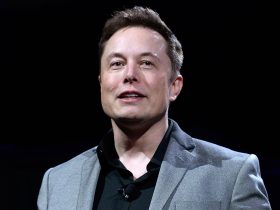
In an era where digital privacy is increasingly under scrutiny, recent allegations surrounding Google’s data collection practices have sparked a heated debate. A recent report has stirred the pot, shedding light on Google’s practices, while the tech giant denies any wrongdoing. This blog post will navigate through the intricacies of this debate, focusing on the report’s findings, Google’s response, criticism of YouTube’s protection methods, and the growing calls for more scrutiny and auditing.
1. Details on Report’s Findings
The report, compiled by a coalition of privacy advocates and consumer watchdog groups, paints a disconcerting picture of Google’s data collection practices pertaining to children. The key findings shed light on the extent of data collection:
1.1. YouTube and the Kids’ App:
The report alleges that Google’s data collection stretches beyond the confines of its child-friendly YouTube Kids app. Data, including personal information, is reportedly gathered from children even while using the dedicated app. This revelation has raised concerns about the platform’s compliance with the Children’s Online Privacy Protection Act (COPPA).
1.2. Location Tracking:
Another unsettling discovery is the purported collection of location data from devices running Google services. This revelation has implications for the privacy of children and prompts questions about the necessity and security of such data collection.
1.3. Sensitive Data Collection:
The report suggests that Google gathers sensitive information from children, such as voice recordings and search queries. This practice raises ethical concerns regarding the implications of building profiles of young users for targeted advertising purposes.
1.4. Lack of Transparency:
A critical issue highlighted by the report is the opacity of Google’s data collection practices. The complex nature of its privacy policies and terms of service makes it challenging for parents and guardians to fully comprehend the extent to which their children’s data is being collected and utilized.
2. Google Denies Any Wrongdoing
In response to the allegations, Google has vehemently denied any wrongdoing. The company asserts that its practices are in compliance with legal requirements and that it provides tools for parents to monitor and control their children’s online activities. Google’s stance maintains that their priority is to provide valuable services while safeguarding user privacy.
3. Criticism of YouTube’s Protection Methods
Critics argue that Google’s measures to protect children’s data on platforms like YouTube have fallen short. Despite the introduction of the YouTube Kids app, the allegations suggest that the platform’s tracking mechanisms continue to be a cause for concern. Critics assert that if true, these practices could potentially violate COPPA and undermine the trust of parents and guardians.
3.1. COPPA Compliance Questioned: The report underscores concerns that YouTube’s data collection practices might not align with COPPA’s provisions, which require parental consent for collecting data from children.
3.2. Balancing Content and Safety: The debate extends to finding the right balance between child-friendly content delivery and robust data protection mechanisms. Critics argue that the allure of personalized content might be overshadowing the importance of safeguarding young users’ privacy.
4. Calls for More Scrutiny & Auditing
The report has spurred a chorus of voices advocating for greater scrutiny and transparency in the tech industry. Advocates emphasize the need for independent auditing of data collection practices to ensure compliance with regulations and ethical standards. Strengthening the enforcement of COPPA and similar regulations has been suggested as a step toward safeguarding children’s online privacy.
Conclusion: Navigating the Path Ahead
The allegations surrounding Google’s data collection practices for children’s advertising have ignited a multifaceted discussion on privacy, ethics, and transparency. As technology continues to shape our lives, it is paramount that tech giants take responsibility for their practices and remain committed to safeguarding the rights and privacy of all users, especially the youngest ones. The ongoing discourse should not only prompt companies to reevaluate their data collection methods but also encourage policymakers, parents, and users to collectively shape a digital landscape that prioritizes privacy and accountability.






Leave a Reply